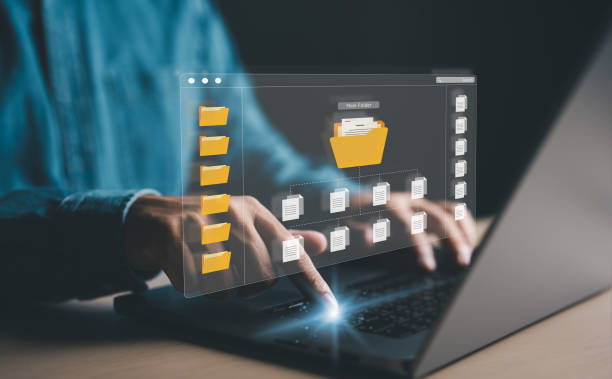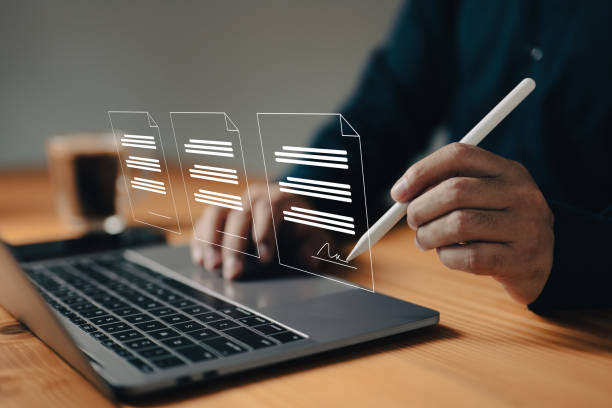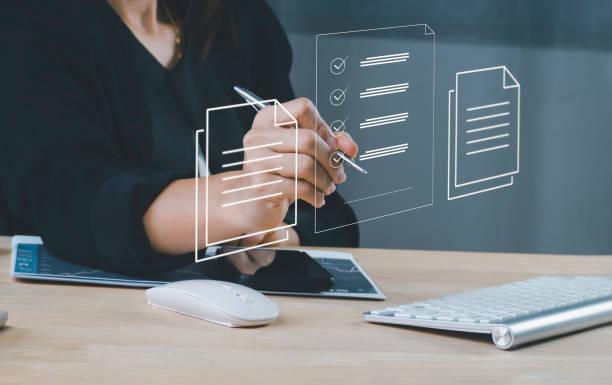What is On-Page SEO and Why Does it Matter?
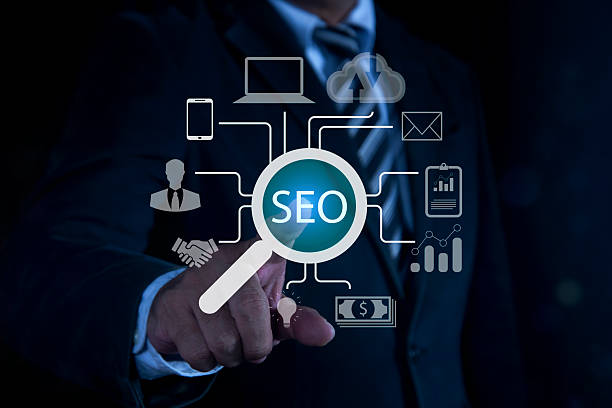
#On_Page_SEO refers to a set of actions taken to optimize website pages in order to improve ranking in search engine results.
These actions include content optimization, title tags, meta descriptions, URL structure, internal links, page load speed, and many other things.
The importance of on-page SEO is that it helps search engines better understand the content of your site and recognize its relevance to users’ search queries.
The better search engines understand your site’s content, the more likely they are to display your site in search results for relevant terms.
In short, on-page SEO helps you to:
- Increase your site’s ranking in search results.
- Attract more organic traffic to your site.
- Provide a better user experience for your site visitors.
- Optimize your site for search engines.
By doing on-page SEO, you are actually telling search engines what your site is about and why they should show it to users in the search results.
This is a long-term strategy that can bring very valuable results to your business.
For more information about website optimization, you can visit the Website Optimization site.
On-page SEO is a vital aspect of the overall SEO strategy and should not be overlooked.
Did you know that 94% of users’ first impressions of a business are related to its website design? With professional corporate website design by **Rasaweb**, turn that first impression into an opportunity for growth.
✅ Attract more customers and increase sales
✅ Create credibility and trust in the eyes of the audience⚡ Get a free website design consultation!
Keyword Research and Selecting the Best Phrases
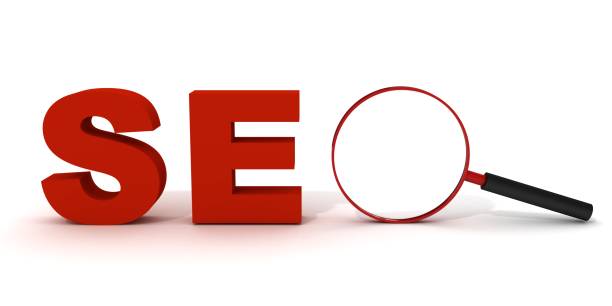
Keyword research is the cornerstone of any successful SEO strategy.
Before taking any action in the field of on-page SEO, you need to know what phrases your target audience enters into search engines.
To do this, you can use various tools such as Google Keyword Planner, Ahrefs, SEMrush, and Moz Keyword Explorer.
After identifying relevant keywords, you need to prioritize them based on search volume, competition, and relevance to your business.
Look for keywords that have a decent search volume and at the same time have less competition.
Also, make sure that the keywords you choose are directly related to your products, services, or site content.
Another important point in choosing keywords is considering the Search Intent.
What is the user’s goal in searching with a specific phrase? Are they looking for information? Are they planning to buy something? Are they looking for a specific website? By understanding search intent, you can produce content that best meets users’ needs.
When choosing keywords, also pay attention to the length of the phrases.
Long-Tail Keywords usually have lower search volume, but the competition is also lower and they can attract very targeted traffic to your site.
Finally, a combination of short and long keywords can bring you the best results.
For example, for training in this regard, you can visit the Keyword Research site.
Don’t forget that on-page SEO without keyword research is like building a house without a map.
Optimizing the Page Title (Title Tag)
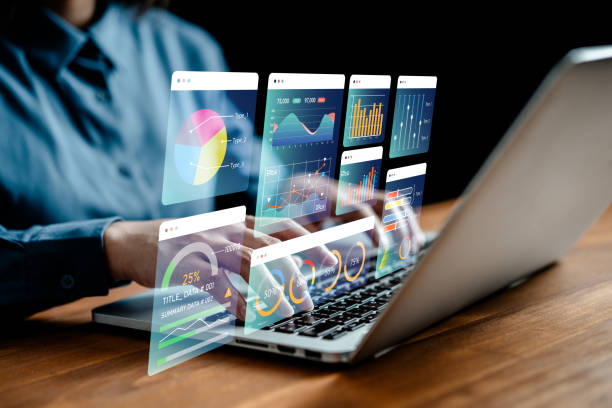
The Title Tag is one of the most important elements of on-page SEO.
This tag displays the title of your page in the search results and plays an important role in attracting users and encouraging them to click on your link.
The title tag also helps search engines to better understand the subject of your page.
To optimize the title tag, consider the following points:
- Use your main keyword in the title tag.
Try to place the keyword at the beginning of the title tag. - The page title should be descriptive and attractive.
Use words and phrases that grab users’ attention and encourage them to click. - The length of the title tag should not exceed 60 characters.
Search engines usually shorten longer title tags. - Each page of your site should have a unique title tag.
Avoid repeating title tags on different pages.
An optimized title tag can make a big difference in the amount of organic traffic to your site.
By spending a little time and effort optimizing title tags, you can improve your site’s ranking in search results and attract more visitors to your site.
The title tag is placed in the <head> section in the HTML code of the page:
<head>
<title>Your Page Title</title>
</head>
Optimizing on-page SEO in this section is very important.
| Feature | Description |
|---|---|
| Main Keyword | Using the main keyword at the beginning of the tag |
| Descriptive and Attractive | Using attractive and engaging words and phrases |
| Appropriate Length | Maximum 60 characters |
| Unique | A unique title tag for each page |
Optimizing Meta Descriptions
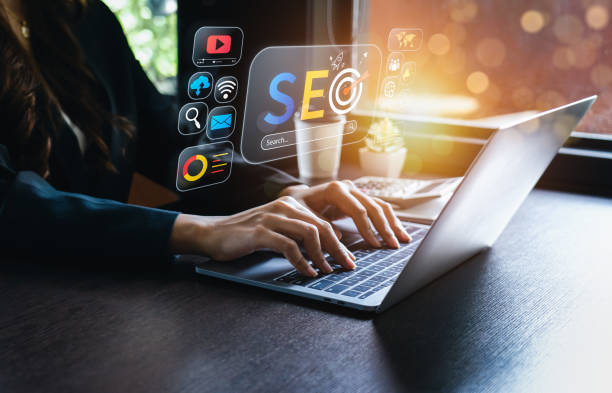
The Meta Description is a short summary of the content of your page that is displayed in the search results below the page title.
Meta descriptions do not directly affect your site’s ranking, but they play an important role in attracting users and encouraging them to click on your link.
An attractive and relevant meta description can increase your site’s click-through rate (CTR).
To optimize meta descriptions, consider the following points:
- The meta description should accurately and concisely describe the content of the page.
- Use relevant keywords in the meta description.
- The meta description should be attractive and engaging.
Use words that grab users’ attention and encourage them to click. - The length of the meta description should not exceed 160 characters.
Search engines usually shorten longer meta descriptions. - Each page of your site should have a unique meta description.
Avoid repeating meta descriptions on different pages.
The meta description is placed in the <head> section in the HTML code of the page:
<head>
<meta name="description" content="Your Page Description">
</head>
On-page SEO can be improved by optimizing meta descriptions
Did you know that a weak company website loses you many opportunities every day? Solve this problem forever with professional corporate website design by Rasaweb!
✅ Create a powerful and reliable image of your brand
✅ Targeted attraction of new customers and increased sales
⚡ [Get a free website design consultation]
Optimizing URL Structure
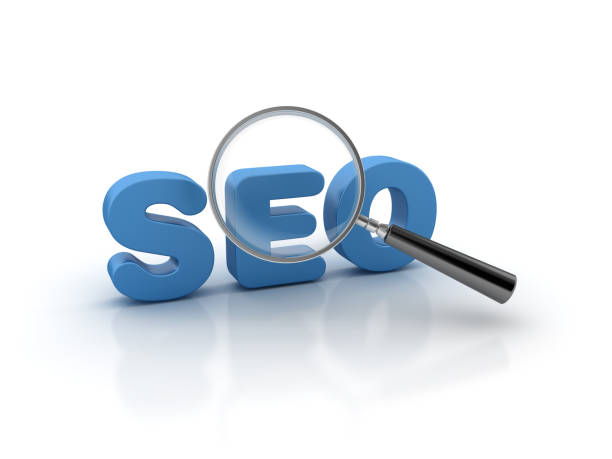
The URL structure of your site plays an important role in SEO and user experience.
An optimized URL should be short, descriptive, and include relevant keywords.
Long and complex URLs are more difficult for search engines and users.
To optimize the URL structure, consider the following points:
- Use relevant keywords in the URL.
- The URL should be short and descriptive.
Avoid unnecessary words and phrases. - Use hyphens (-) to separate words in the URL.
- The URL should be readable and understandable.
- Avoid using uppercase letters, numbers, and special characters in the URL.
Examples of optimized URLs:
https://www.example.com/seo-internalhttps://www.example.com/keyword-researchhttps://www.example.com/content-marketing
Examples of bad URLs:
https://www.example.com/page?id=12345&category=67890https://www.example.com/%D8%B3%D8%A6%D9%88-%D8%AF%D8%A7%D8%AE%D9%84%DB%8C
Optimizing the URL structure is an important aspect of on-page SEO that can help improve your site’s ranking in search results.
For more information about SEO, you can visit the SEO URL Structure site.
Content Optimization
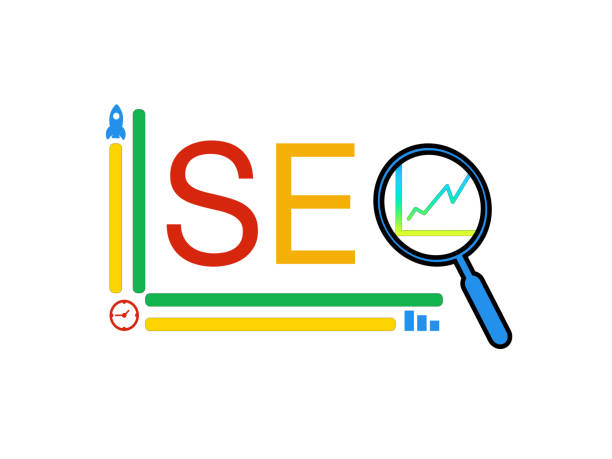
Content is king! This is a cliché, but it is still true.
High-quality and relevant content is one of the most important ranking factors in search engines.
Your content should fully meet the needs of users, provide accurate and up-to-date information, and be perfect in terms of writing and spelling.
To optimize content, consider the following points:
- Do keyword research and use relevant keywords in your content.
- Update your content regularly.
- Use images, videos, and other multimedia elements to make your content more attractive.
- Divide your content into smaller sections (using titles and subtitles).
- Use relevant internal and external links in your content.
- Write your content for your target audience.
Search engines are looking for content that is useful and valuable to users.
By producing high-quality content, you can improve your site’s ranking in search results and attract more traffic to your site.
On-page SEO is a long-term strategy
| Element | Description |
|---|---|
| Keywords | Using relevant keywords |
| Update | Regular content updates |
| Multimedia elements | Using images, videos, etc. |
| Links | Using internal and external links |
Image Optimization
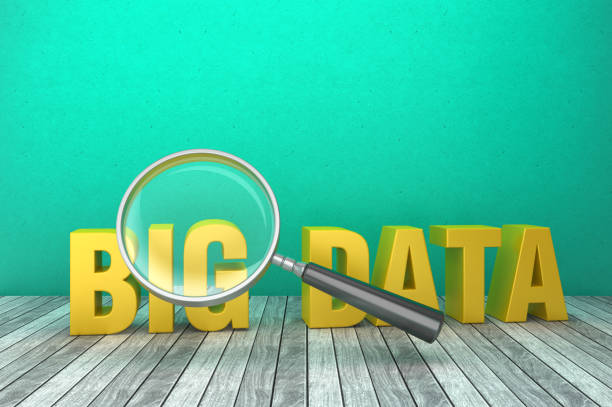
Images can play an important role in the attractiveness and understanding of your site’s content.
However, large and unoptimized images can slow down page loading speed and negatively affect your site’s SEO.
To optimize images, consider the following points:
- Use images with the appropriate format (JPEG for photos, PNG for images with graphics).
- Compress images before uploading them to your site.
- Use the Alt tag to describe images.
The Alt tag helps search engines understand the subject of the image. - Choose the file name of the images with relevant keywords.
By optimizing images, you can improve page loading speed and strengthen your site’s SEO.
On-page SEO means paying attention to details
Internal Linking
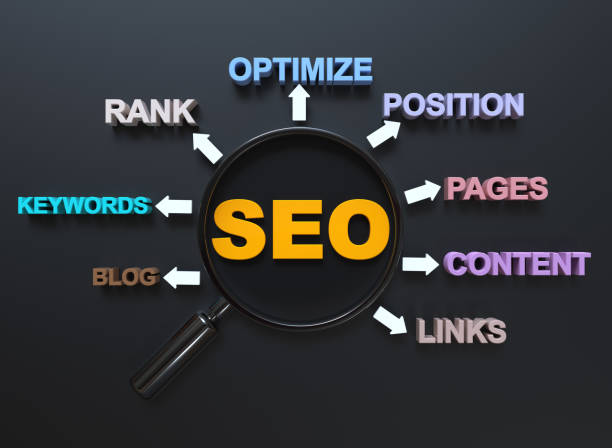
Internal linking means creating links between different pages of your site.
Internal linking helps search engines to better understand the structure of your site and identify more important pages.
Also, internal linking can help improve user experience and keep visitors on your site longer.
For internal linking, consider the following points:
- Link to the more important pages of your site.
- Use relevant and descriptive Anchor Text.
- Place the links naturally in your content.
- Avoid over-linking.
Internal linking is an important aspect of on-page SEO that can help improve your site’s ranking in search results.
You can visit the Internal Linking site for more information
Isn’t your online sales as you expect? With Rasaweb, solve the problem of low sales and poor user experience forever!
✅ Increase the conversion rate of visitors to customers
✅ Create a pleasant user experience and increase customer trust
⚡ Act now to get a free consultation!
Page Load Speed

Page load speed is an important ranking factor in search engines.
Users expect website pages to load quickly.
If your page loads slowly, users may leave your site and go to another site.
This can negatively affect your site’s Bounce Rate.
To improve page loading speed, consider the following points:
- Optimize your images.
- Use a CDN (Content Delivery Network).
- Use browser cache.
- Compress your CSS and JavaScript code.
- Use quality hosting.
Page load speed is an important factor in on-page SEO.
Mobile Optimization
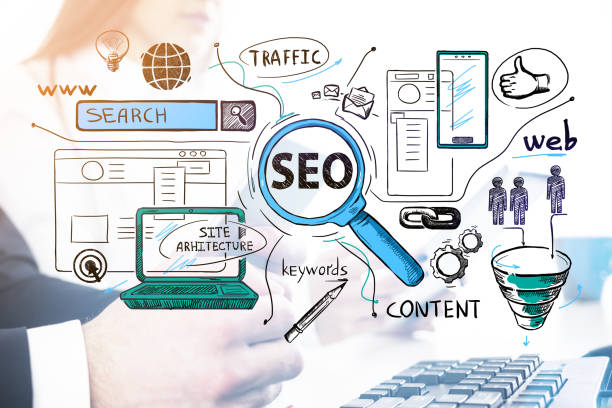
Today, most users access the Internet through mobile devices.
Therefore, optimizing the site for mobile is a necessity.
Your site should be optimized for display on different mobile devices and provide a good user experience for mobile users.
To optimize your site for mobile, consider the following points:
- Use Responsive Design.
- Improve page loading speed on mobile devices.
- Use readable fonts and appropriate size.
- Use large and touchable buttons and links.
Mobile optimization is an important aspect of on-page SEO that should not be ignored.
By optimizing your site for mobile, you can improve your site’s ranking in search results and attract more traffic to your site.
On-page SEO makes your site optimized for all users.
Through on-page SEO, you can turn your site into a user-friendly site.
On-page SEO allows you to overtake your competitors.
By using on-page SEO you can attract more visitors to your site.
Don’t forget that on-page SEO is a continuous process and requires effort and perseverance.
Frequently Asked Questions
| Question | Answer |
|---|---|
| What is On-Page SEO? | On-page SEO involves optimizing elements that are directly within your control and within your website. Its goal is to help search engines better understand the content of the page and improve its ranking. |
| Why is on-page SEO important? | On-page SEO gives clear signals to search engines about the content of the page, improves the user experience, and increases the chance of attracting organic traffic. |
| What are the most important on-page SEO factors? | Keywords, Title Tag, Meta Description, URL structure, quality content, image optimization, and internal links are among the most important factors. |
| What is the role of the Title Tag in on-page SEO? | The title tag is one of the most important signals for search engines and users that specifies the main topic of the page. It should include the main keyword and be attractive. |
| How important is the Meta Description? | The meta description does not directly affect the ranking, but it can improve the click-through rate (CTR) by encouraging users to click. |
| How to optimize images for on-page SEO? | By using a descriptive file name, appropriate Alt Text containing keywords, compression to reduce volume and correct dimensions. |
| What effect do Internal Links have on SEO? | Internal links help search engines discover and index site pages, distribute authority (PageRank) across the site, and improve user navigation. |
| Is page load speed part of the on-page SEO factors? | Yes, page load speed is a vital factor in on-page SEO and user experience. Slower pages can lead to higher bounce rates and lower rankings. |
| What are the characteristics of quality content for on-page SEO? | Quality content should be comprehensive, unique, relevant, reliable, readable, and fully answer the needs and questions of users. |
| How can keywords be used in the content? | Keywords should be used naturally in the title, subtitles, first paragraph, body of text, and alt text of images. Avoid Keyword Stuffing. |
And other services of Rasa Web Advertising Agency in the field of advertising
Smart Linking: A creative platform to improve digital branding with Google Ads management.
Smart Data Analysis: Professional optimization for user interaction using attractive UI design.
Smart Content Strategy: A new service to increase SEO ranking by using real data.
Smart Digital Advertising: An effective tool to increase click-through rate with the help of custom programming.
Smart SEO: A quick and efficient solution to increase site visits by focusing on attractive UI design.
And more than hundreds of other services in the field of internet advertising, advertising consulting and organizational solutions
Internet Advertising | Advertising Strategy | Advertorial
Resources
On-Page SEO Guide from HubSpot
,On-Site Optimization Training from Moz
,On-Page SEO: Practical Guide from Ahrefs
,On-Page SEO: Key Tips from Yoast
? With Rasaweb Afrin, build the future of your business in the digital world. We help you keep your brand at its peak by providing innovative digital marketing solutions, from personal website design and corporate to SEO and targeted advertising. With us, have a powerful and effective presence online.
📍 Tehran, Mirdamad Street, next to the Central Bank, Kazeroon Jonoubi Alley, Ramin Alley No. 6
“`

